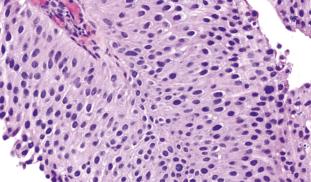Please wait...
About This Project
Molecular pathoepidemiology is the study of the cause and natural history of disease on a molecular, individual, and population level, utilizing tissue specimens and data from existing epidemiological studies. We aim to use this method to better diagnose bladder cancer, to more accurately estimate its risk of recurrence, and to inform personalized targeting of anti-cancer drugs. In the long term, we plan to apply these principles to other cancers and related illnesses.

Browse Other Projects on Experiment
Related Projects
Shutting down cancer’s recycling system with exosome-based therapy
Pancreatic cancer is one of the deadliest cancers because its cells survive by recycling their own components...
Developing a novel oxysterol antibiotic to combat drug-resistant tuberculosis
Drug-resistant tuberculosis (TB) is a consistently growing threat to global health. We have developed Oxy291...
Tote-Size portable incubator for rapid field work
Waiting for lab results is slowing science down! We are designing a fully open source portable incubator...




